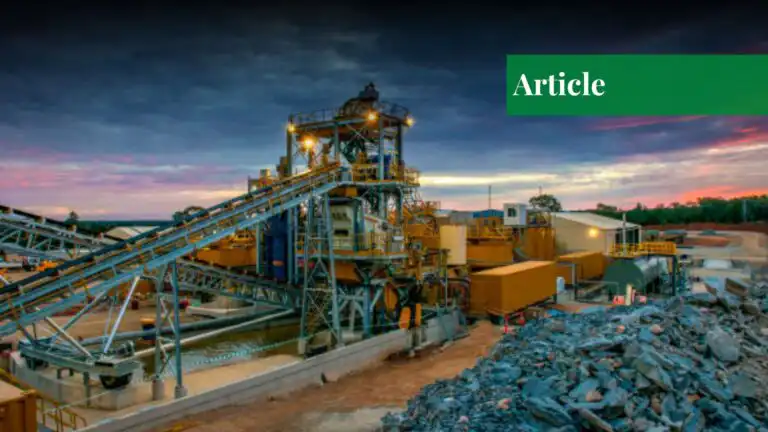Ms Jaweria Naseem is currently pursuing her Bachelor's in International Relations from International Islamic University, Islamabad.
Balochistan and Khyber Pakhtunkhwa possess more than half of Pakistan’s entire natural resources. These resources include rare minerals, natural gas, crude oil, coal, gold, marble, and other valuable minerals. The government organized a mining conference on 8th and 9th April, 2025, named as Pakistan Mineral Investment Forum. PPL, Barrick, Mari Energies, Riko Diq mining company, FWO, PMPL, and GHPL were joint venture partners of this forum. This event invited investors and government representatives from all over the world to explore the minerals and mining opportunities in Pakistan. Delegates from different countries attended the conference and showed interest in investment in the mining sector. After the event concluded successfully, the government decided to propose a bill related to the amendment of the 2017 Act. On 12th March, 2025, the bill was passed in the Balochistan assembly without any resistance. The bill was named the Balochistan Mines and Minerals Amendment Act 2025. According to this, the federal government has authority in matters relevant to the minerals of Balochistan.
On 4th April, 2025, the same bill was proposed in the Khyber Pakhtunkhwa Assembly but hasn’t passed yet. The bill is named as Khyber Pakhtunkhwa Mines and Minerals Amendment Act 2025. After the outburst of members of the assembly from different political parties, it sparked a national debate.
Why Does Khyber Pakhtunkhwa Resist the Bill?
There are several reasons behind the resistance from the KPK assembly. Section 6(i) permits the Mineral Investment Facilitation Authority (MIFA) and the Federal Mineral Wing to give recommendations on issues related to mining. It raised serious concerns about provincial autonomy. The politicians from Khyber Pakhtunkhwa consider it a violation of the constitution and a serious attack on the rights of the local people of KPK.
According to the 18th Amendment, provinces have full control over their natural resources. The provincial government is fully authorized to make laws in order to manage the natural resources of the province. The federal government is prohibited from interfering in matters related to the province’s natural resources. But this bill binds the licensing authority to take suggestions from the institutions of the federal government.
The members of the Mineral Investment Facilitation Authority (MIFA) are increased from 7 to 14 in this bill. One federal representative would also be included in this authority and allowed to vote. Furthermore, temporary licenses are also authorized for projects related to the national interest. The domain of national interest hasn’t been defined clearly, due to which concerns are raised related to the limitations.
This bill failed to ensure benefits for the local populations in both provinces. It appears attractive on paper, as the employment and progress opportunities are highlighted. However, the local people recognize that these are just hollow promises, and no one will work for their betterment once the bill is passed.
The Mines and Minerals Act, 2025 was drafted under the supervision of the Special Investment Facilitation Council (SIFC). This institution is in the jurisdiction of the federal government. The local miners and people who have deep knowledge about minerals in their area have not been consulted. It raised concerns about the ownership and autonomy of provinces over their resources.
Recommendations
First of all, peace should be maintained in both provinces because they are facing terrorism, ethnic issues, and separatist movements, which eventually lead to instability in the area. The federal government always has an eye on the natural resources of these provinces; however, it has never made sincere efforts to eradicate terrorists and to maintain peace. When this bill passes in both assemblies, international investors will show interest in the mining sector, and their first demand will be a secure environment, which the government can’t provide without maintaining peace in the area. The federal government should maintain stability and harmony in Balochistan and KPK to attract mining companies to Pakistan.
The government should provide a stake to the local community of the area in the form of employment and other facilities. When people have a job to lose, they will not support terrorist organizations like the Balochistan Liberation Army (BLA), Tehreek-e-Taliban Pakistan (TTP), etc. These terrorists mostly succeed with the support of the local people, and the local population helps them just because they are not satisfied with the government’s attitude towards them. Furthermore, they have nothing to lose. All these factors provide them the courage to support terrorists and to fight against the state. The day the government begins treating them with the same respect as other citizens and allows them to own their resources, they will automatically stop aiding the terrorists.
The federal government should revise the Mines and Minerals Act, 2025, and remove the clauses that are controversial. Furthermore, new clauses should be added after a detailed discussion with the local miners, businessmen, politicians, and people who have a deep influence on the local population. Then the bill should be presented in front of both assemblies, and after a comprehensive debate and voting, it should be passed. It would satisfy the local community that the bill is made by their people. This trust of citizens would make it easy for any investor to come and work in a secure environment, because investors have to work among the local population, and for this purpose, their support is very important.
Conclusion
The presence of abundant natural resources and minerals in Pakistan can contribute to the economic growth of the country, but Pakistan doesn’t have enough capability to take advantage of them. This is because we don’t have the latest machinery to mine and purify minerals, and it compels us to sell raw material to other countries. These countries purify them and export them at higher prices. That is why it is crucial to invite mining companies to Pakistan and purify the raw material in our own country. It would increase local employment, revenue, and facilities for citizens. Additionally, it would benefit Pakistan in a number of ways, including economic growth, an increase in foreign exchange, foreign investment, and political stability.
If you want to submit your articles and/or research papers, please visit the Submissions page.
To stay updated with the latest jobs, CSS news, internships, scholarships, and current affairs articles, join our Community Forum!
The views and opinions expressed in this article/paper are the author’s own and do not necessarily reflect the editorial position of Paradigm Shift.






